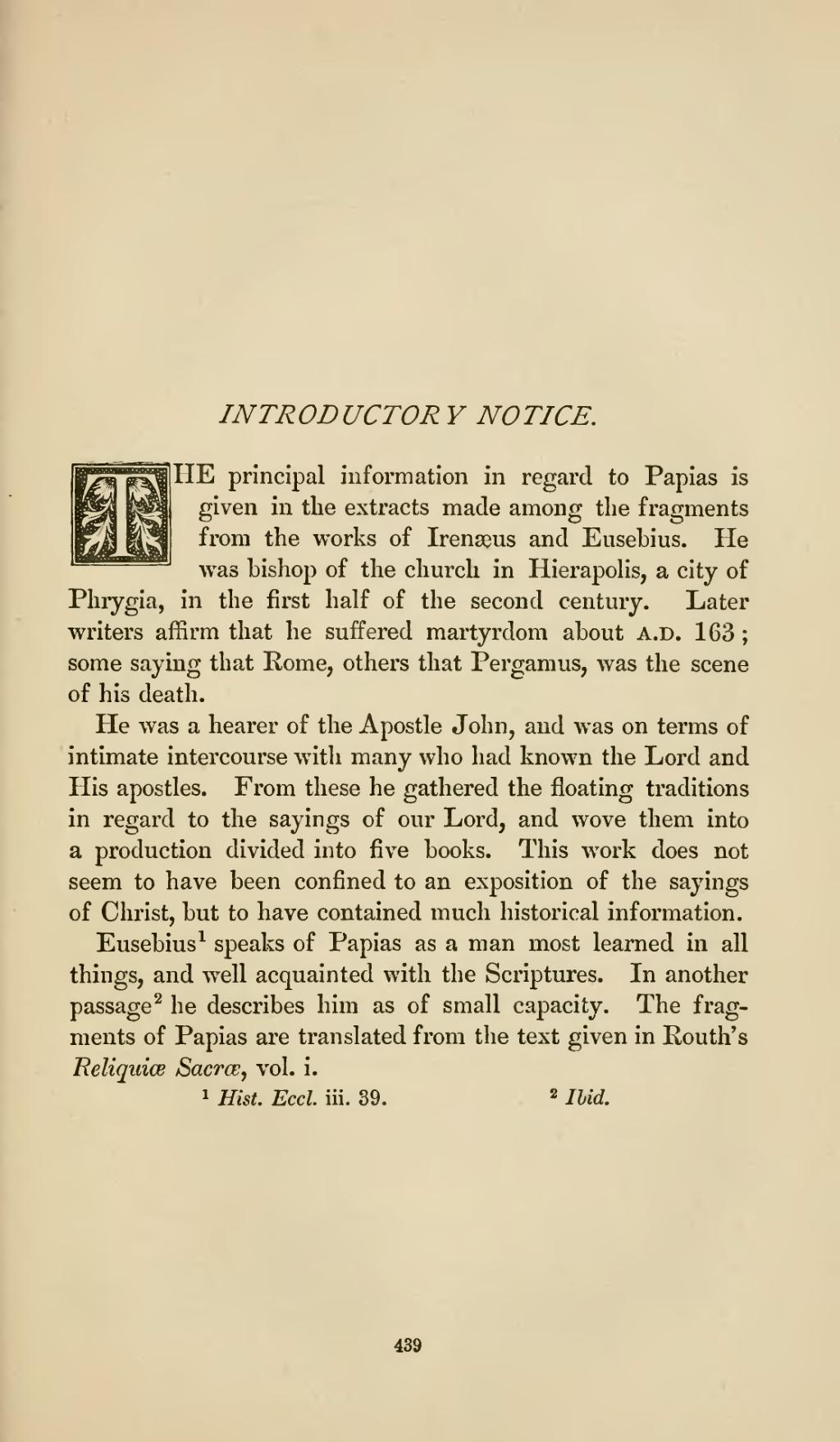INTRODUCTORY NOTICE.
 HE principal information in regard to Papias is given in the extracts made among the fragments from the works of Irenæus and Eusebius. He was bishop of the church in Hierapolis, a city of Phrygia, in the first half of the second century. Later writers affirm that he suffered martyrdom about A.D. 163; some saying that Rome, others that Pergamus, was the scene of his death.
HE principal information in regard to Papias is given in the extracts made among the fragments from the works of Irenæus and Eusebius. He was bishop of the church in Hierapolis, a city of Phrygia, in the first half of the second century. Later writers affirm that he suffered martyrdom about A.D. 163; some saying that Rome, others that Pergamus, was the scene of his death.
He was a hearer of the Apostle John, and was on terms of intimate intercourse with many who had known the Lord and His apostles. From these he gathered the floating traditions in regard to the sayings of our Lord, and wove them into a production divided into five books. This work does not seem to have been confined to an exposition of the sayings of Christ, but to have contained much historical information.
Eusebius[1] speaks of Papias as a man most learned in all things, and well acquainted with the Scriptures. In another passage[2] he describes him as of small capacity. The fragments of Papias are translated from the text given in Routh's Reliquiæ Sacræ, vol i.
439
